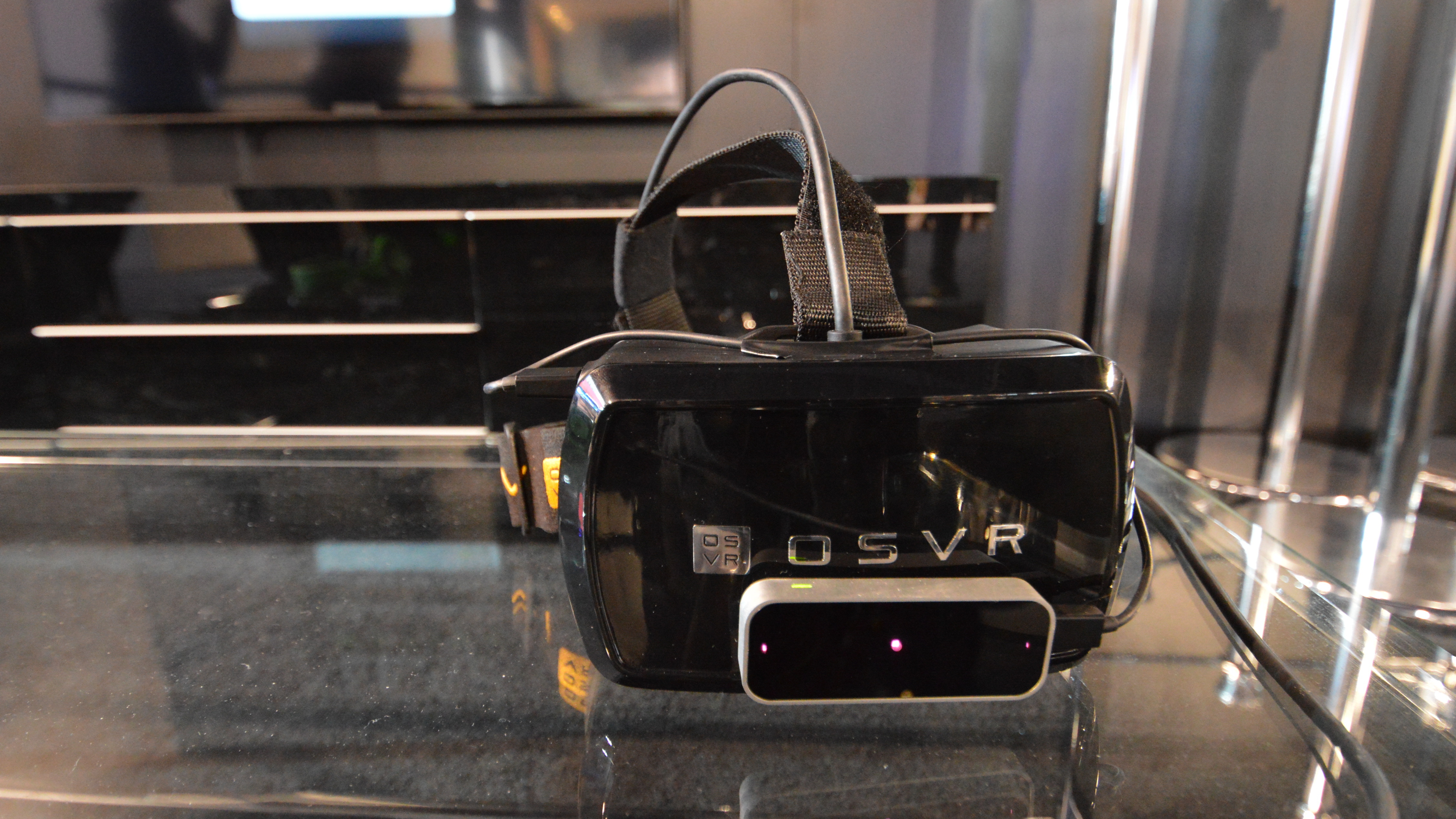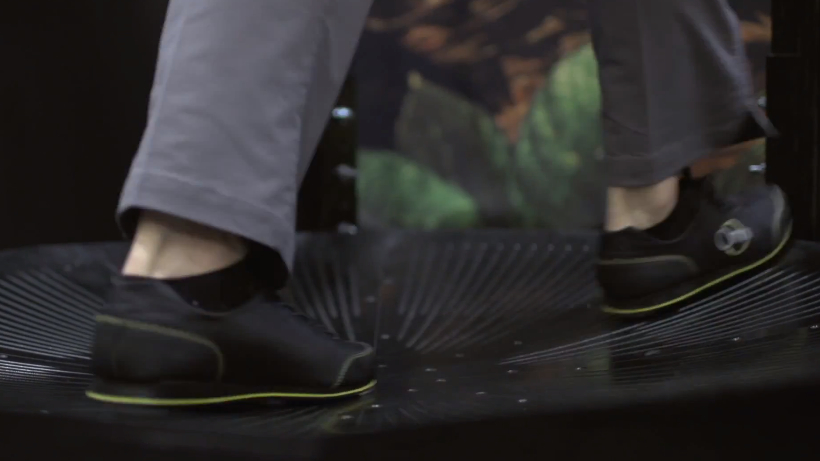How virtual reality could revolutionise PC gaming
Get set for the headsets — it's going to be a thrilling ride
Sign up for breaking news, reviews, opinion, top tech deals, and more.
You are now subscribed
Your newsletter sign-up was successful
With VR's limitations in mind, think about multiplayer shooting games where the action is intense, and some of the best strategies are to strafe, jump, and duck. It's hard to see how this would effectively map into a VR experience with the technology we have, such as with an Oculus Rift or HTC Vive plus hand controllers (e.g. STEM by Sixense).

On the other hand (no pun intended), Razer recently showed off its OSVR headset with a Leap Motion controller fixed to the front. This means that hand gestures without holding a controller could become a reality — although the latency problems that the Leap suffers would have to be fixed first.
The Virtuix Omni is an interesting attempt at addressing the first-person shooter market by providing a 360-degrees treadmill to walk on. This certainly opens up the scope for first-person perspective games in terms of VR, and even MMORPGs.

Pace yourself
The current state of VR technology really points to games that move at a more sedate pace, which doesn't include first-person shooters. The need for speed and extreme maneuverability (at least if you are unable to get a Virtuix Omni) just seems like a bit too much to ask without getting just enough screen lag to potentially cause nausea and frustration.
However, there are plenty more games that would work well. Just imagine wandering around in an MMORPG stopping to appreciate the scenery. However, the control systems would need to be looked at. Just check out a few screenshots of World of Warcraft and see all the ability toolbars. Something like this, where you can't see your keyboard or (real) hands means that having a keyboard full of shortcuts isn't going to work for virtual reality. Then again, if hand tracking (i.e. Leap Motion) takes off, it's possible that VR games could have a type of HUD that you 'air tap' on with your fingers to access more functions.
As mentioned above, simulators that place you in a driving seat are ideal for VR. Puzzle games where you interact with 3D objects could work well too. In fact, talking of puzzle games, who wouldn't like to see Portal as a virtual reality game? Its unique mix of first-person perspective action and mind-bending puzzles could play very well to VR. In fact, Valve showed off some Portal 2 characters in a VR demo quite recently.
Sharing is caring
So far the experiences we've talked about are fairly solitary. What about multiplayer? Well, for most home gamers, the cost of a head-mounted display and pair of hand controllers and even an Omni treadmill is still going to be fairly prohibitive, at least in the short-to-medium term. However, this doesn't rule out online gaming where those who can afford the equipment can congregate and play.
Sign up for breaking news, reviews, opinion, top tech deals, and more.
Future VR games may even make the experience of human interaction richer by incorporating facial tracking into headsets so that if you smile, or snarl, that expression is reflected on your avatar. This would be amazing in an MMORPG where multiplayer experiences are much more social than in FPS games. (Who has ever seen the Master Chief smile?!).
- Check out what's going on during PC Gaming Week